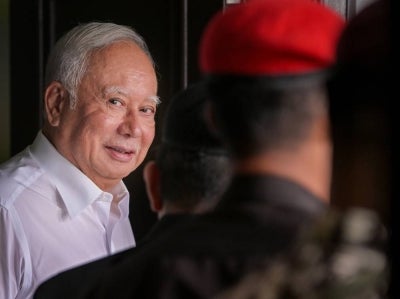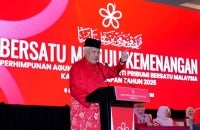Separation of AG-PP powers a lengthy process - Azalina
04 Dec 2023 08:16pm

Datuk Seri Azalina Othman Said - BERNAMA
As a nation with diverse laws, the government needs more time to conduct a comprehensive and in-depth study so that the decisions made are not subject to changes in the future.
"We need a thorough study done because Malaysia has various laws. We can see that in other countries that made decisions on the separation of powers, some have backtracked, this is a big problem and that is why we need a comprehensive and in-depth study.
"It (study) is necessary so that the decision on the separation of powers remains permanent,” she said during the question and answer session at Dewan Negara today.
She was replying to a supplementary question from Senator Datuk Dr Nuing Jeluing who wanted to know when the separation of powers between the Attorney General and the Public Prosecutor could be implemented.
Azalina said there also must be political stability to enable amendments to the related laws to be made before the separation of roles between the two bodies can be finalised.
"The separation of powers between the Attorney-General and the Public Prosecutor is a long process... institutional reform requires amendments to the constitution, and it will not be achieved if the government is not stable,” she said.
On Oct 9 Azalina said that the agenda to separate the roles of the Attorney General and the Public Prosecutor would be implemented in three different phases after the government took into account the complexity and challenges of its implementation.
Through phase one, the Special Task Force for Comparative Studies will conduct a study on several countries to examine and formulate the most suitable model in the context of Malaysia.
Phase two will involve a Special Technical Task Force, which will comprehensively examine legal, staffing and financial implications before preparing an interim report for the Cabinet’s consideration.
Phase three, meanwhile, will involve joint engagement sessions with the Sabah and Sarawak governments as well as other stakeholders, including enforcement agencies. -- BERNAMA
Download Sinar Daily application.Click Here!














